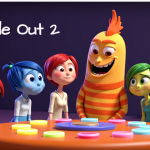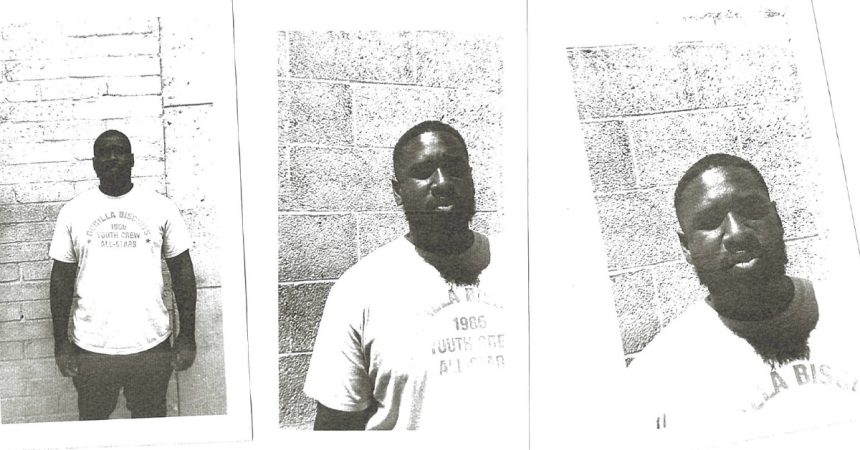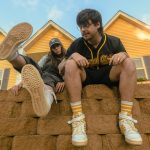H2O’s Toby Morse and Shapel Lacey appear in our Fall 2023 Issue with cover stars Scowl, Yves Tumor, Poppy, and Good Charlotte. Head to the AP Shop to grab a copy.
As the lights dim, the crowd pushes violently toward the band, playing level with the audience. Guitars, bass, and drums create a buzzy and impenetrable wall of feedback, surging toward the pit like a call-and-response. It’s a contagious entity. The noise seeps into your body — chest tingling, excitement rises — and you feel the people around you reverberating with the same electric force. This is the all-encompassing energy of a hardcore show — and to my knowledge, nowhere else.
Hardcore is sacred. Its energy transcends the social boundaries of age, location, and class. It is the connective tissue that unites graphic designers, union workers, eager kids, and old heads. I started going to hardcore shows at my town’s local VFW when I was 13, and still today, regardless of how much time passes between attending a show, I am a different person than I would have been had I never heard bands like H2O — a sentiment most heavy music fans will resonate with.
Read more: 15 best modern hardcore bands for day one fans
Growing up in the hardcore scene, I came to understand it to be as much of a philosophy as it is a genre of music. Hardcore empowers people to pick up an instrument and join a band, to bootleg Photoshop and make a flyer, to hop in a van and book a tour, and to do things themselves. This mindset is what powers the energy felt at shows and in songs.
Sometimes, when I feel jaded and resistant to change, I wonder if the energy and ethos that captivated me as a teen is dying. Then someone like Shapel Lacey, vocalist of Mad Peaceful, stand-up comedian, and former male cheerleader — a bona fide Renaissance man — comes along, a reminder that hardcore is still alive. In fact, it’s thriving.
Few people embody the spirit of hardcore like Shapel and his friend — the old head who loves the scene more than anyone I know — Toby Morse. Shapel and the vocalist of H2O and host of the One Life, One Chance podcast linked to talk about the one thing that connects us: hardcore.
You two are an unlikely pair. Tell me about your friendship.
SHAPEL LACEY: Toby actually found me on Instagram and commented on a photo of me wearing a Circle Jerks shirt. I wasn’t even sure it was him, but it was so I followed him back. It was crazy.
TOBY MORSE: We discovered we lived 10 minutes away from each other, so I had him on my podcast, and now I can’t get him off my couch. I took him to his first Madball show.
LACEY: I started kicking [it] with Toby a lot. I do stand-up comedy. There’s not a lot of people in stand-up that are from the world that I’ve been in since I was a kid. Comedy is such an individual thing. Everyone is just there for themselves, respectfully. With music, there is a lot more of a community.
MORSE: The way you tell your story is the same way hardcore bands tell their stories through lyrics. We’re as authentic as possible. We wear our hearts on our sleeve, and that’s what you do with your comedy. You tell your story, not made-up jokes about other people. You like to laugh at some of the situations you’ve been through, turning a negative into a positive.
Would you say you write jokes and music the same way?
LACEY: I’ve never fronted a band before. Never. My first time playing shows was with [Mad Peaceful]. It’s funny: We have no expectations, but we just practice as if there’s no tomorrow.
You gotta realize with stand-up, you don’t get a practice space. I explain it like this: With music, you can practice an instrument by yourself and get good at it and then showcase it when you feel ready. With stand-up, you have to practice it in front of people.
I feel like you guys have a good cadence going, which I assume comes from knowing how important timing is in comedy.
LACEY: With comedy, you have to be comfortable with silence because when you’re comfortable with the silence, then you’re in control. They see when you’re not weird about the silence and think, “Oh, he knows what he’s doing.”
I’ve definitely played plenty of shows where I get uncomfortable and just turn my back to the crowd.
LACEY: We kind of blackout onstage. We always say it doesn’t matter how the crowd reacts. We have to play for us.
Toby, do you still get that same feeling now playing shows and touring? You’ve been doing this for 30-plus years.
MORSE: Totally, it’s amazing. My son is playing drums, and it’s really surreal. He’s an incredible drummer, and it’s brought a whole new energy to my band where we feel reborn in a sense. We played this past weekend, and it was perfect. There were older heads and younger kids seeing us for the first time. I’m really lucky to still do it. It’s cool to see 7 Seconds and Circle Jerks still doing it. They’re in their 60s and still killing it, you know? Those are my inspirations. Sick of It All, Terror, Agnostic Front. Descendents are bigger than they’ve ever been. Iggy Pop, too.
He’s still rolling around onstage — it all speaks to the time we’re in. Hardcore is having a mainstream moment that gives older bands the opportunity to play to new kids. Growing up on punk, do you think the exposure is positive? I know a lot of people worry that it’s watering the scene down.
MORSE: The gatekeeping shit is very, very corny. I think that a lot of times people say things like that out of a sense of jealousy, like their band never got that, but these bands getting mainstream love were inspired by your band, and that should be enough. Back in the day, [H2O] covered Madonna, and people thought that wasn’t punk. Now you can have hardcore bands that have a pop sensibility and different melodies. They’re taking all their inspirations and putting it into one style, and they’re not afraid of being judged. It’s beautiful, man. I embrace it. I love it.
LACEY: I agree with that. For me, hardcore changed my life and saved my life in a positive way. I feel like it’s still doing that for me to this day. The style and sound have changed, but I embrace all of it because it’s thriving. I live in California, and I feel like there’s shows every single night. We go to so many shows and check out so many new bands. I see young kids putting on shows like they did 30 years ago.
MORSE: 7 Seconds sings about “walk together, rock together.” I live that. I embrace that. I want to have a community of diverse people.
LACEY: There were so many bands singing about diversity in the ’80s, but it really wasn’t happening. Now it’s happening, and it’s beautiful to see. Speaking as a Black fella, I’m starting to see more Black people within the culture. Growing up, a lot of times I was the only Black kid there, but every time I went to a show, I felt embraced. I never felt like I wasn’t allowed at shows, but a lot of Black people didn’t have the comfortability to jump into that world. It’s cool to see people of color come out of that zone of feeling like they can’t mess with [hardcore].
MORSE: It’s a community — it’s beyond the music. But I’ll still go see Drake.
A lot of older heads I talk to seem very jaded and uninvolved in the scene today. You guys are both still stoked on hardcore.
MORSE: I feel like my podcast keeps me connected to what’s going on. My son and Shapel, as well. We did this tour with Drain. It was amazing. I still love hardcore, and I’m not embarrassed to say that. I’m 53 and still claim straight edge. I’m still vegan. I’m still proud of who I am. Music changed my life. People might think it’s corny or cliche, but I don’t care.
LACEY: I love learning about hardcore. I don’t care if someone feels a type of way about it. If you try to gatekeep something from me, I’ll just go around you. I don’t care about your little gate. If I enjoy something, I’m gonna go out and do it.
Say some kid heard your band for the first time and wants to learn about hardcore. What direction do you point them in?
MORSE: Go to a show, and when you go to school the next day, you’ve got a story to tell.
LACEY: The thing about hardcore that’s different from most other music is that it’s a small world. You can talk to the band at the merch table after the set. There is something very special about how attainable it is for a lot of kids to be a part of.
MORSE: It’s that connection with strangers, covered in sweat, jumping up and down singing along. It’s crazy to explain to people. [But] I gotta give it up to Programme Skate. They’re just so welcoming.
It does seem like there is something special happening in Southern California at the moment.
MORSE: Absolutely. It’s really dope. I think Sound and Fury has been a massive deal for the scene.
Speaking of Sound and Fury, they have new bands and some OGs. Do you have any essential listens for new kids who don’t know much about this history of hardcore?
LACEY: Fugazi, Circle Jerks, anything Dischord era.
MORSE: Real quick, I just want to say that there are new bands putting people onto the OG stuff. Scowl does a Misfits cover, and Drain has a Descendents cover on their new album. I don’t think the newer heads are as ignorant as people try to claim.
LACEY: Hardcore might be more mainstream right now, but it’s still hardcore.









